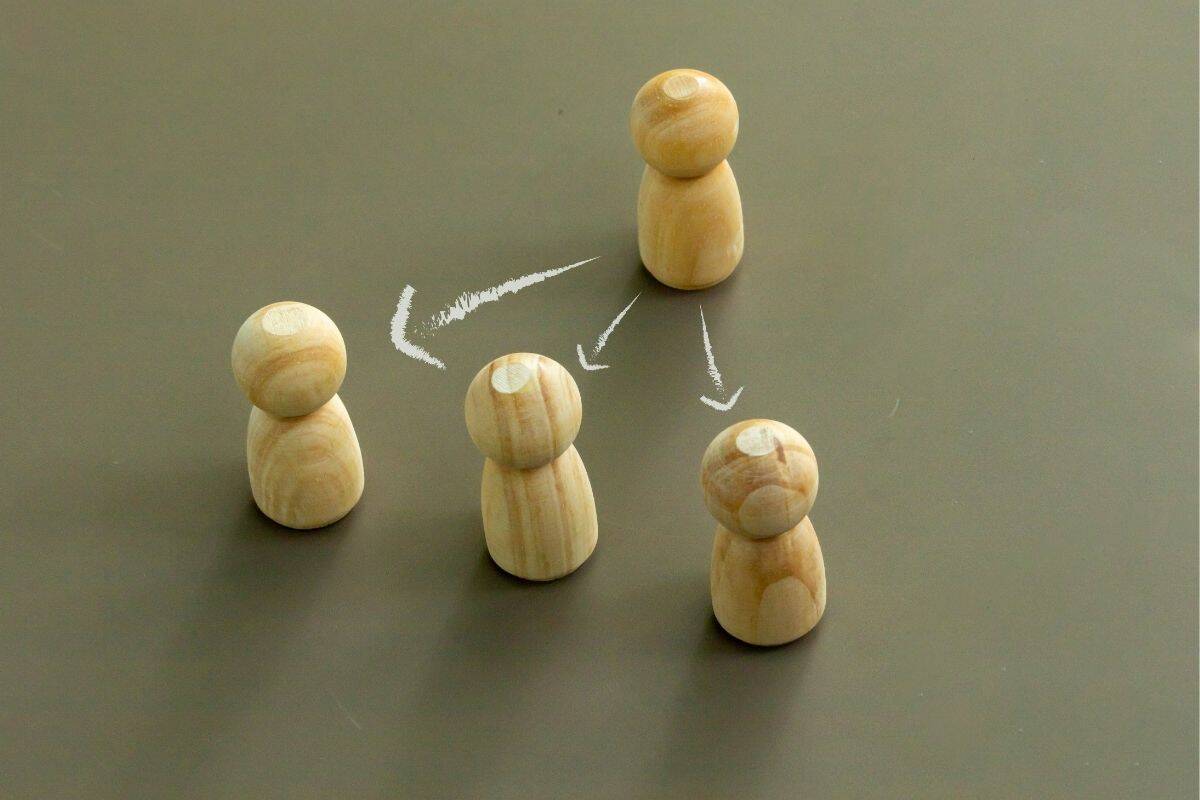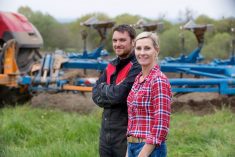Amy VanderHeide had great role models growing up. She was raised on a beef farm that was run entirely by women after her grandfather passed away in 1986. With her grandmother and aunts continuing to operate the farm throughout her childhood, she wasn’t aware of the barriers that existed for women in agriculture.
“I didn’t realize what some of those barriers were because I lived in this glass house that was run by women, and that was just how things were,” she says. “But now, I have some personal experience with things like sexism and generational differences, and wage gaps.”
VanderHeide spent some time working outside of agriculture as an educational assistant and receptionist before she married husband, James. Today, VanderHeide works full-time alongside James on their own cow-calf operation, as well as growing crops and operating the broiler chicken farm owned by her in-laws, and like many women who have married into a family farm structure, she has sometimes found it hard to find her place.
Read Also

Executive decisions: what and when to delegate on the farm
Consider the end state you’re working to achieve on your farm when deciding what tasks to delegate, when to do so and on whom, farm management advisors recommend.
“I get paid the same as my husband, but not necessarily treated the same, and I understand some of that is because I’m not blood family, but as far as recognition for what I contribute or what my value is, it’s not often recognized,” she says.
Although VanderHeide is well aware that her experiences are not unique, she finds it easier to understand intergenerational considerations that may affect someone’s behaviour or reasoning than to encounter a lack of respect for one’s value or contribution at the board table.
“There are still comments sometimes around the board table where someone says something and they don’t realize that they are offending a woman that’s at the table,” says VanderHeide. “Then there are the bigger issues like the wage gap, and just being underrepresented because there’s still a very prominent ‘Old Boys’ Club’ mentality in agriculture, so it’s intimidating for a lot of young women especially, to break through that.”
VanderHeide is involved in various industry organizations: Kings County Federation of Agriculture, as president of the Chicken Producers Association of Nova Scotia, member of the Nova Scotia Federation of Agriculture Public Trust Committee, and a director with the Do More Agriculture Foundation.
She is also a co-founder of the Facebook group — Maritime Ag-Women’s Network (MAWN) — that connects women in agriculture across the Maritimes. MAWN has grown since 2016 to over 1,100 followers, and is having a big impact through women supporting and empowering each other, and building their confidence to achieve new goals and seize opportunities in the industry.
“It’s been amazing to see members of the group be introduced to other areas of agriculture and all the opportunities that have come up for them as a result,” VanderHeide says. “It has really helped to reduce some of those barriers like imposter syndrome, that feeling that you are out of place. By having someone give a bit of a nudge, it helps build confidence so you can say ‘I do belong here’ and there are people behind me that have been here, and are there to catch me if I fall. We are seeing that every day and it makes a real impact.”
Things are starting to slowly change, especially with regard to women’s roles in agriculture at all levels, and VanderHeide believes this is the time to push gender conversations to keep the momentum towards better gender equity in an industry that is going to need to embrace diversity at all levels to ensure its future.
“I think we’re in the perfect position right now to engage industry in gender conversations,” VanderHeide says. “We have those who’ve paved the way for us, our grandmothers and mothers, who are still around to teach us about their stories. We can use them to showcase how women have been involved in agriculture all along and what we’ve learned from them. We’re also opening up a lot more and sharing our roles, struggles and accomplishments which, in turn, will make the path that much easier for the next generation of ag women to step up behind us.”
Although progress on issues around equality and diversity may be slow, it’s not going to change without reaching beyond long-established comfort zones, and embedded preconceptions and traditions.
“We need to bring in people that weren’t brought up in agriculture but have so much knowledge on the other side of things to contribute to it. Whether that is going into farming itself, or whether that’s going in to work in industry, it’s about making sure that those messages are going out to the right people but also to more people and more groups that aren’t necessarily ag-based,” VanderHeide says.
VanderHeide has three sons; Jackson (13), Warren (nine) and Clay (seven), and she is hopeful that by the time they are ready to take over as the next generation, these kinds of conversations won’t be needed any more.
“Instead of repeating ourselves, and developing policies and mandates, we just hope that we can stop having these conversations one day about women who are experiencing sexism at work, or asking ‘Why did this tractor dealer ask for my husband when I own the farm?’ because that won’t be a reality anymore,” VanderHeide says.
















